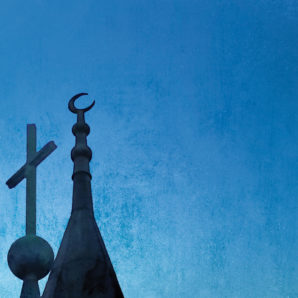Civility 101: Do Unto Otters
Review of Do Unto Otters by Laurie Keller (New York: Henry Holt and Company LLC, 2007).
Shrillness, vitriol, and a distinct lack of civility characterize much of our public discussion in America these days. America is torn and tense. One example is that the topic of Islam in public discussion has become almost radioactive. A jolting, disturbing reminder spread across the internet last week in video footage of loud, rude, and at times vicious anti-Muslim protesters who held a rally in February at a mosque in California. And Rep. Peter King’s hearings on Islamic radicalization in America have been the focus of intensely polarized—and not particularly civil—national debate.
Read More →
Review of Do Unto Otters by Laurie Keller (New York: Henry Holt and Company LLC, 2007).
Shrillness, vitriol, and a distinct lack of civility characterize much of our public discussion in America these days. America is torn and tense. One example is that the topic of Islam in public discussion has become almost radioactive. A jolting, disturbing reminder spread across the internet last week in video footage of loud, rude, and at times vicious anti-Muslim protesters who held a rally in February at a mosque in California. And Rep. Peter King’s hearings on Islamic radicalization in America have been the focus of intensely polarized—and not particularly civil—national debate.
Read More →
